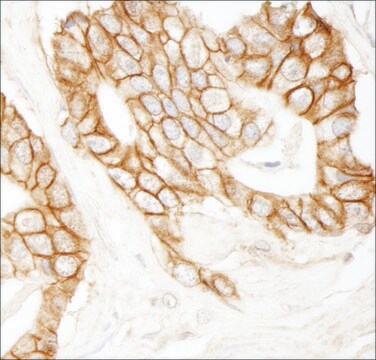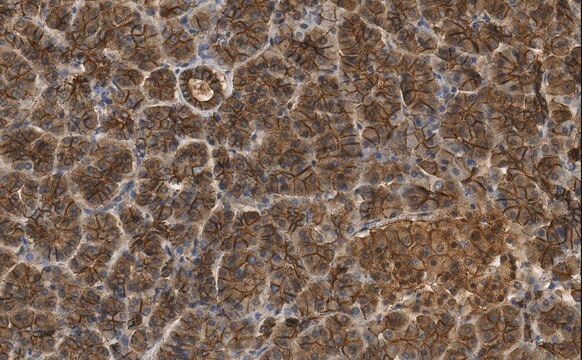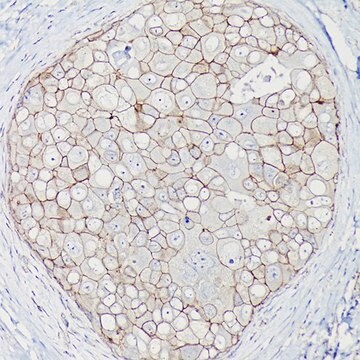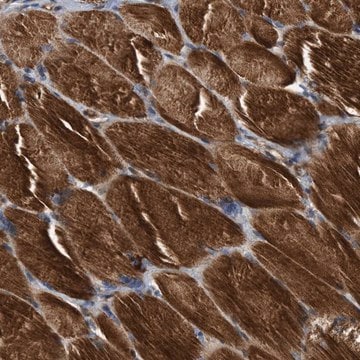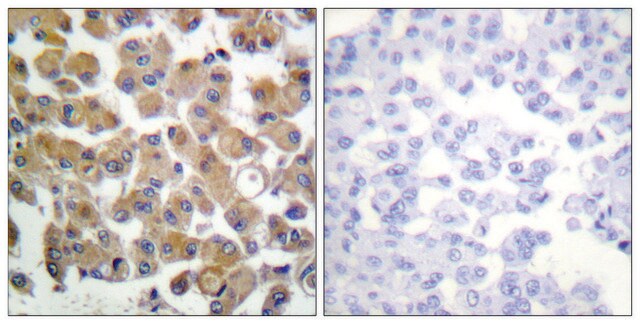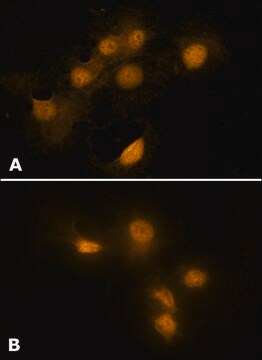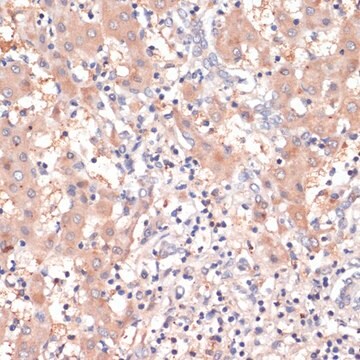SAB4200720
Anti-β-Catenin antibody, Mouse monoclonal
clone 15B8, purified from hybridoma cell culture
Sinónimos:
Anti-CTNNB1, Anti-armadillo
About This Item
Productos recomendados
biological source
mouse
Quality Level
antibody form
purified from hybridoma cell culture
antibody product type
primary antibodies
clone
15B8, monoclonal
form
buffered aqueous solution
mol wt
antigen ~94 kDa
species reactivity
chicken, mouse, human, rat, monkey, hamster, bovine, canine
concentration
~1.0 mg/mL
technique(s)
immunoblotting: 0.25-0.5 μg/mL using Madin-Darby bovine kidney (MDBK) cell line extract
immunofluorescence: 5-10 μg/mL using human breast adenocarcinoma MCF7 cells
immunohistochemistry: suitable
immunoprecipitation (IP): suitable
isotype
IgG1
UniProt accession no.
shipped in
dry ice
storage temp.
−20°C
target post-translational modification
unmodified
Gene Information
human ... CTNNB1(1499)
mouse ... Ctnnb1(12387)
rat ... Ctnnb1(84353)
General description
Immunogen
Application
- immunoblotting
- immunofluorescence
- immunohistochemistry
- immunoprecipitation
Biochem/physiol Actions
Physical form
Disclaimer
¿No encuentra el producto adecuado?
Pruebe nuestro Herramienta de selección de productos.
Storage Class
10 - Combustible liquids
wgk_germany
WGK 1
flash_point_f
Not applicable
flash_point_c
Not applicable
Elija entre una de las versiones más recientes:
Certificados de análisis (COA)
¿No ve la versión correcta?
Si necesita una versión concreta, puede buscar un certificado específico por el número de lote.
¿Ya tiene este producto?
Encuentre la documentación para los productos que ha comprado recientemente en la Biblioteca de documentos.
Nuestro equipo de científicos tiene experiencia en todas las áreas de investigación: Ciencias de la vida, Ciencia de los materiales, Síntesis química, Cromatografía, Analítica y muchas otras.
Póngase en contacto con el Servicio técnico
